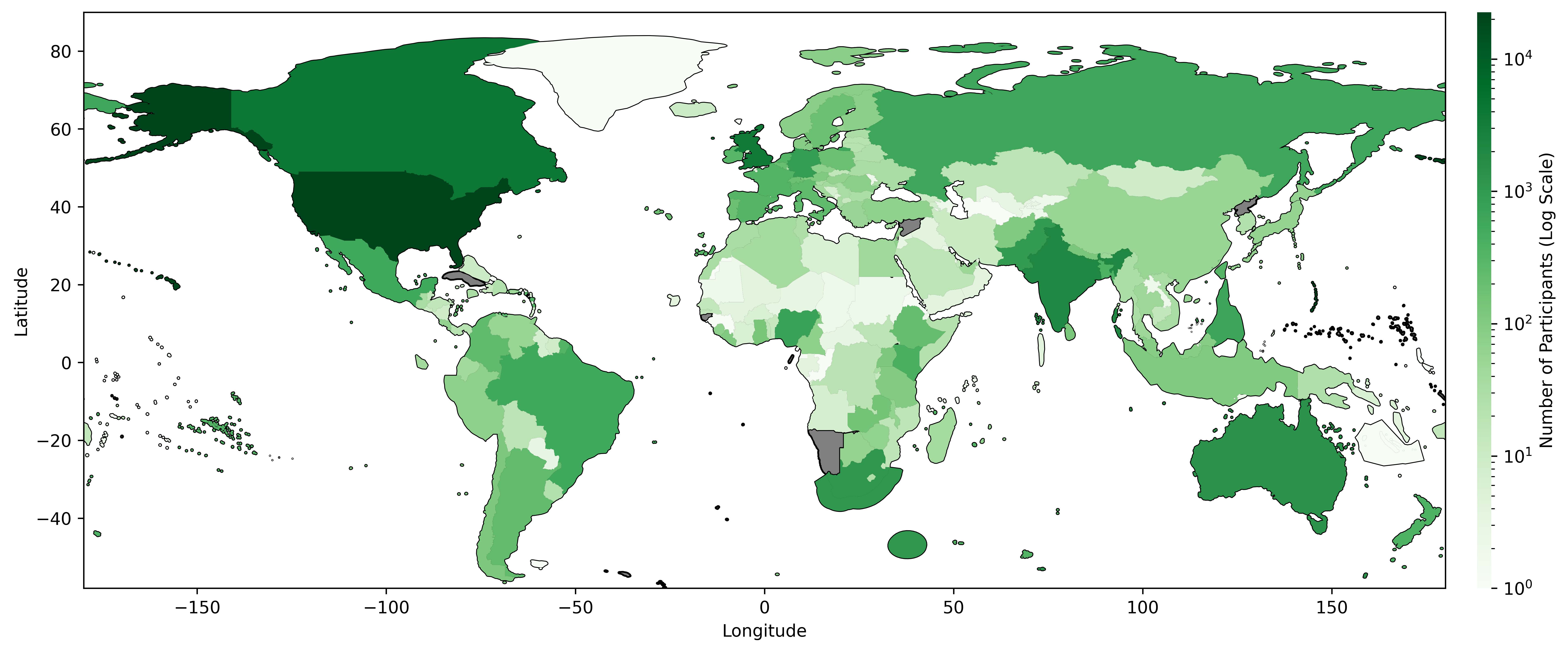Micro-acts, Macro Impact:
Landmark Study Links Kindness Acts to Improved Well-Being
A celebration of someone else’s success. A moment of gratitude. A simple act of kindness. While these gestures may seem small, a new global study reveals they can have a big impact — not just on others, but on our own well-being.
The BIG JOY study, which attracted nearly 50,000 participants across over 200 countries, found that engaging in quick, daily moments of positivity—called “micro-acts of joy”—significantly enhanced mental health, happiness, social connection, and even physical health.

Global Participation of BIG JOY from Jul 1st, 2022 to Feb 1st, 2025, covering nearly 50,000 participants from over 200 countries or territories. The study spans one week, each day delivering one micro-act of joy as the intervention.
Presented at the 2025 ACM CHI conference, one of the world’s leading forums for human-computer interaction, this research offers rare, large-scale evidence on a deeply personal question for many people: how can I lead a happier, more connected life?
Prosociality and Micro-Acts of Joy
Prosociality—voluntary actions intended to benefit others—is known to boost well-being, but how can it be nurtured at scale? Recent research led by Dr. Xuhai “Orson” Xu, Assistant Professor of Biomedical Informatics at Columbia University, attempted to answer this question through a global initiative called BIG JOY, which was initiated by UC San Francisco, Greater Good Science Center at UC Berkeley, and Mission Joy. The interdisciplinary team developed seven brief, daily interventions called “micro-acts” that took less than 10 minutes each to complete and encouraged participants to engage with others and the world around them in more positive, intentional ways:
- Performing small acts of kindness
- Creating gratitude lists
- Celebrating the achievements of others
- Watching awe-inspiring nature videos
- Listening to a guided compassion meditation
- Reflecting on how important prosocial values manifest in everyday life
- Reframing a frustrating situation with positive perspectives
Nearly 50,000 participants from 200 countries joined the BIG JOY study, with data from 18,248 people who completed the intervention offering the first large-scale and empirical analysis of how micro-acts can promote prosociality.
The impact was far-reaching: almost every participant experienced some form of benefit. Younger individuals were most impacted by acts of kindness, while middle-aged participants responded most to celebrating others and experiencing awe. The increases in prosocial feelings also differed by gender—women responded more positively across most activities, while men showed the strongest reaction to the compassion-focused guided meditation.
Moving Towards a Happier Future
Researchers around the world collaborated on the BIG JOY Project to do more than simply study what interventions cause happiness. This work lays the foundation for future digital tools and personalized interventions that can improve mental, social and even physical well-being globally.
The publication, Promoting Prosociality via Micro-acts of Joy: A Large-Scale Well-Being Intervention Study, is now available. Noémie Elhadad, Associate Professor and Chair of the Department of Biomedical Informatics, is one of 14 co-authors on the study.
Acknowledgement from the study team: We thank all the participants of the Big Joy Project. We thank the Mission JOY team, Peggy Callahan and Jolene Smith, and John Negropontes for their vision, in kind efforts, and the support by philanthropic contributions of Mission JOY project as part of the impact campaign for the documentary film, Mission: JOY. We thank the leadership of the Network for Emotional Well-Being for their feedback on study design. We thank in kind support from the UCB Greater Good Science Center. The first author was supported by the NIH Diversity Supplement Award from the National Institute of Aging (U24AG072699-03S).
